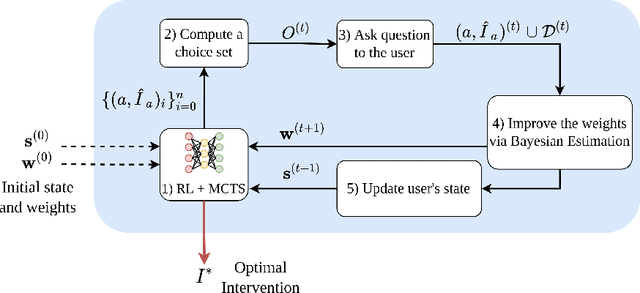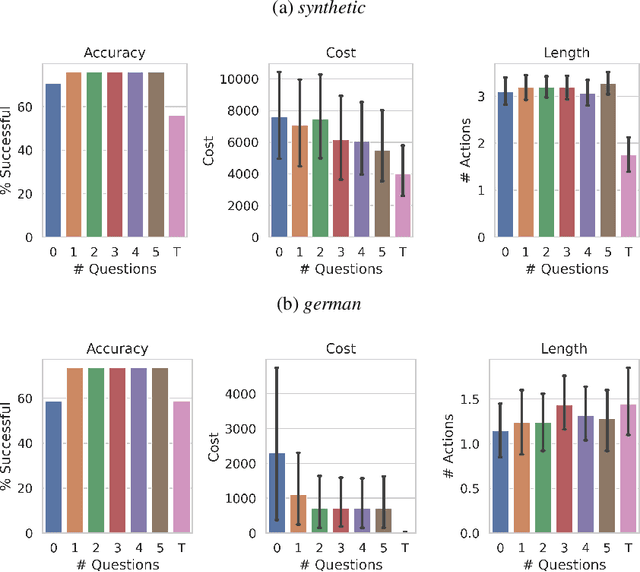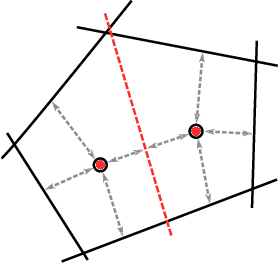Paolo Viappiani
Generating personalized counterfactual interventions for algorithmic recourse by eliciting user preferences
May 27, 2022


Abstract:Counterfactual interventions are a powerful tool to explain the decisions of a black-box decision process, and to enable algorithmic recourse. They are a sequence of actions that, if performed by a user, can overturn an unfavourable decision made by an automated decision system. However, most of the current methods provide interventions without considering the user's preferences. For example, a user might prefer doing certain actions with respect to others. In this work, we present the first human-in-the-loop approach to perform algorithmic recourse by eliciting user preferences. We introduce a polynomial procedure to ask choice-set questions which maximize the Expected Utility of Selection (EUS), and use it to iteratively refine our cost estimates in a Bayesian setting. We integrate this preference elicitation strategy into a reinforcement learning agent coupled with Monte Carlo Tree Search for efficient exploration, so as to provide personalized interventions achieving algorithmic recourse. An experimental evaluation on synthetic and real-world datasets shows that a handful of queries allows to achieve a substantial reduction in the cost of interventions with respect to user-independent alternatives.
Constructive Preference Elicitation by Setwise Max-margin Learning
Apr 20, 2016



Abstract:In this paper we propose an approach to preference elicitation that is suitable to large configuration spaces beyond the reach of existing state-of-the-art approaches. Our setwise max-margin method can be viewed as a generalization of max-margin learning to sets, and can produce a set of "diverse" items that can be used to ask informative queries to the user. Moreover, the approach can encourage sparsity in the parameter space, in order to favor the assessment of utility towards combinations of weights that concentrate on just few features. We present a mixed integer linear programming formulation and show how our approach compares favourably with Bayesian preference elicitation alternatives and easily scales to realistic datasets.
 Add to Chrome
Add to Chrome Add to Firefox
Add to Firefox Add to Edge
Add to Edge